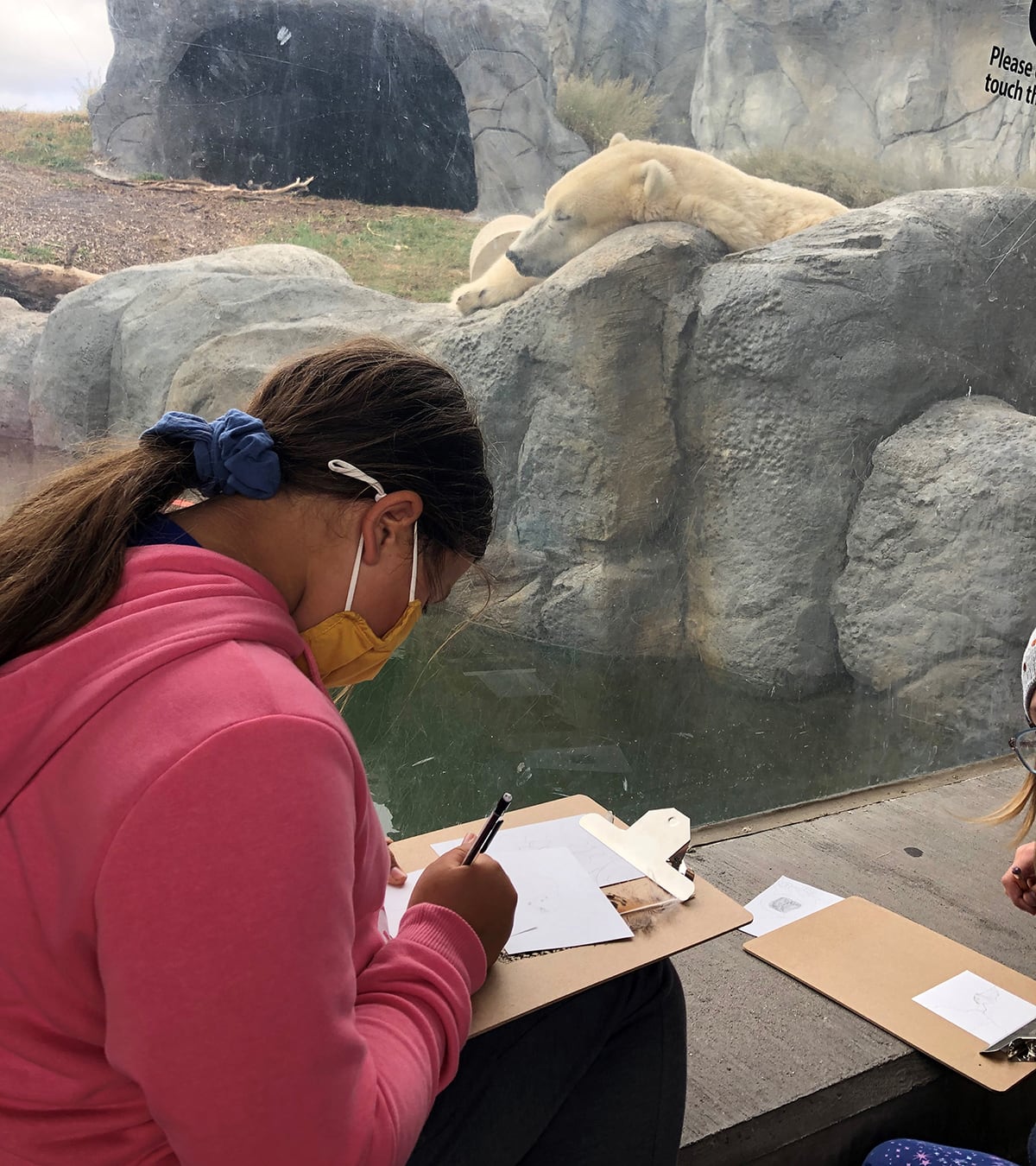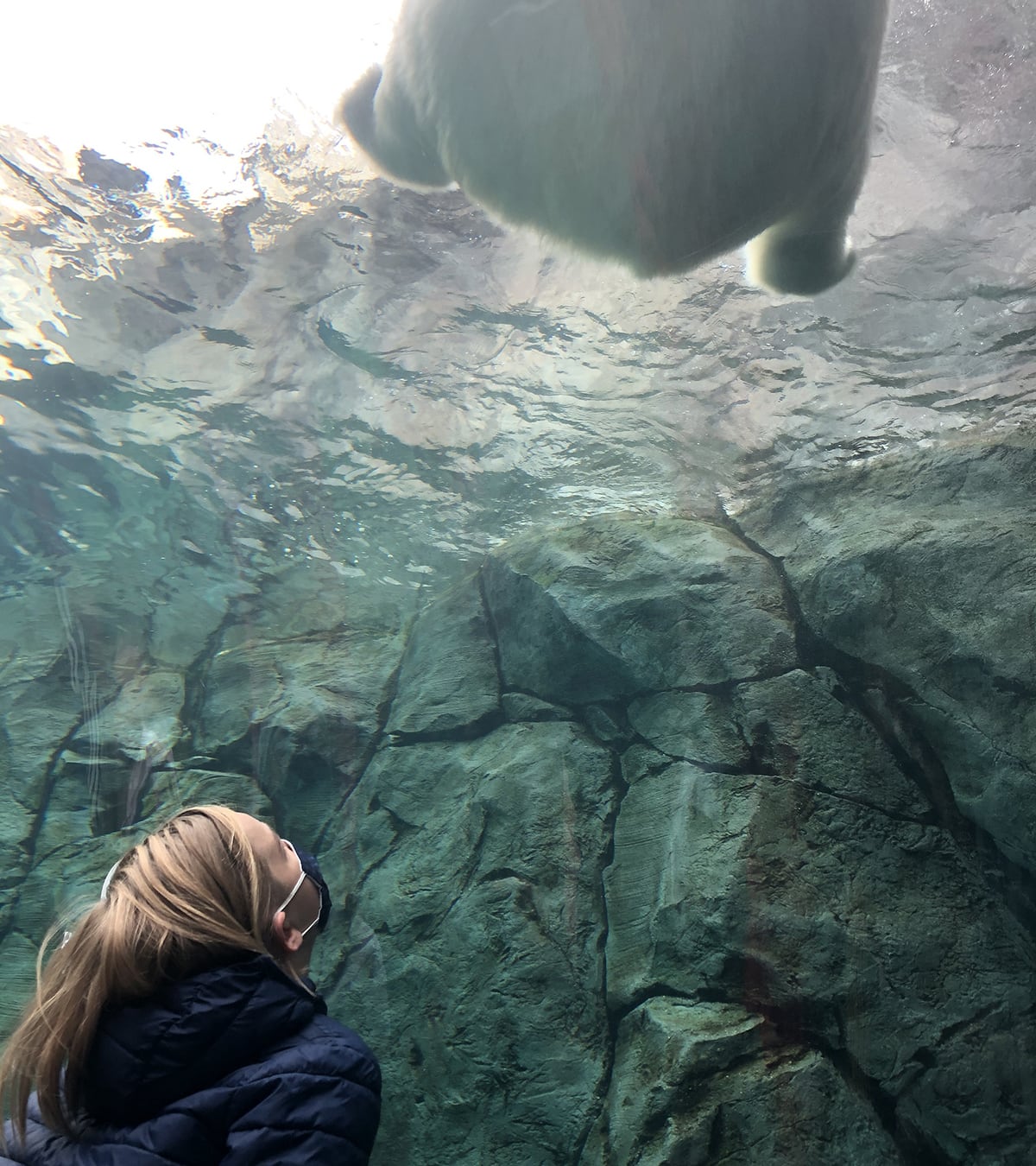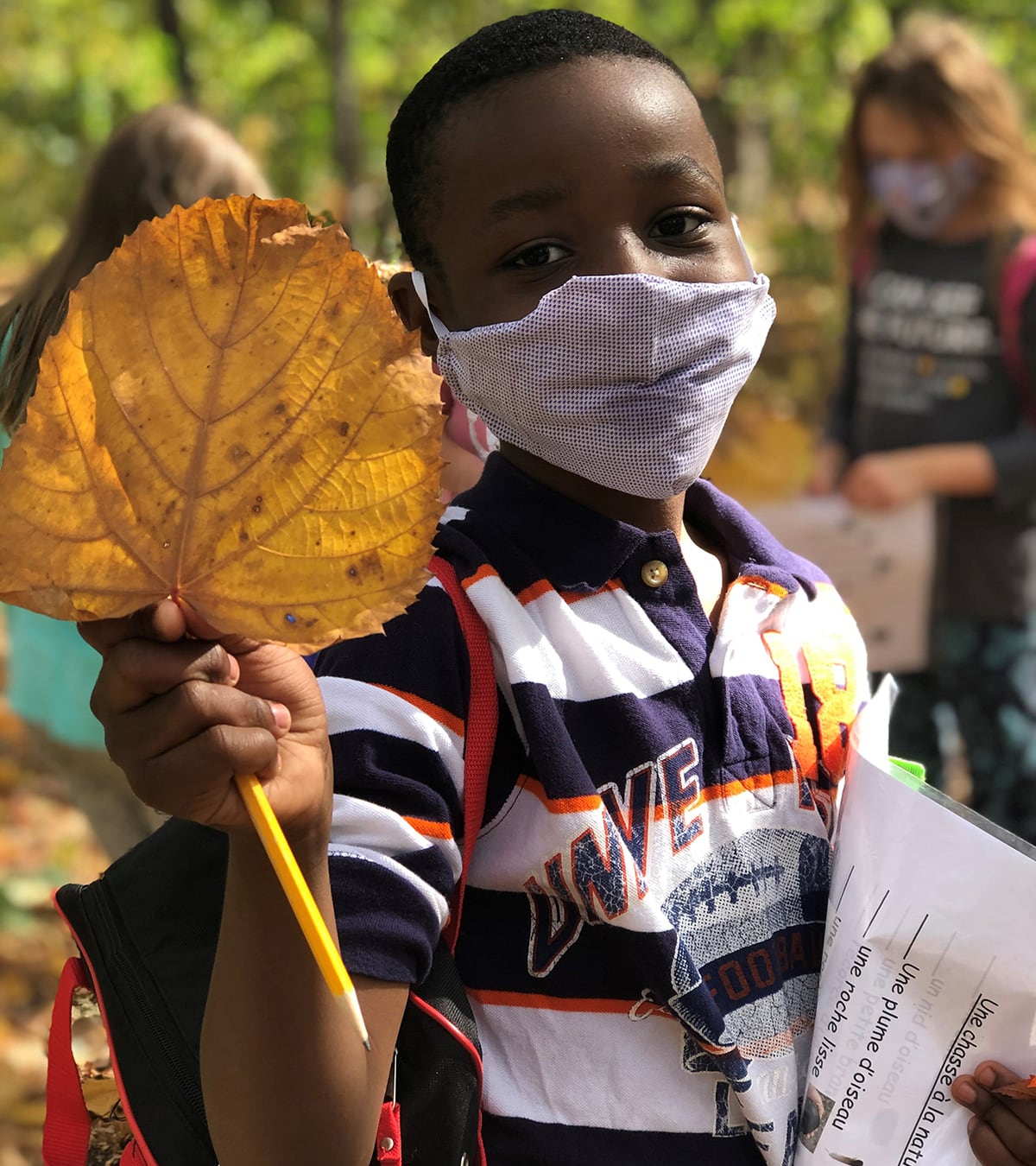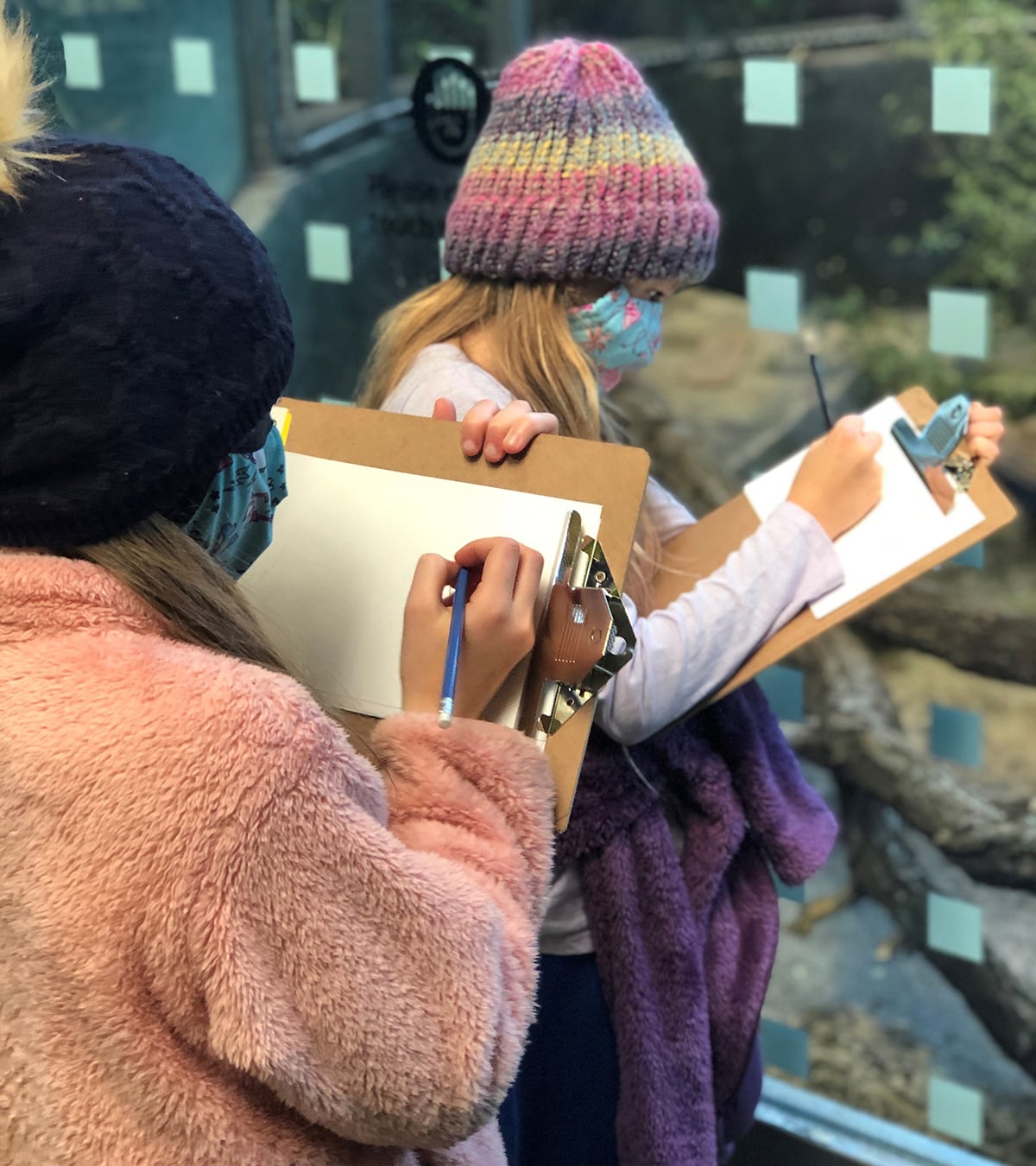Since 2018, the Goodman School program has given students in grades 4 - 6 the opportunity to take up residency at the Zoo, spending a full week immersed in interactive, discovery-based learning. The program, which is funded through a generous grant from The Goodman Foundation, allows students to deepen their relationship with plants, animals, and nature.
This fall, grade five teacher, Landon Gibson, and her class from École Viscount Alexander participated in the Goodman School. Their focus during the residency was exploring themes related to climate change in Manitoba and the impact on Arctic animal populations. Her hope is that this hands-on learning experience will inspire her students, and that the lessons they learn at the Zoo can be extended into her classroom.


“It’s kind of a new concept to my students but I’m just so impressed at how much they’ve been absorbing this week,” said Landon. “The questions that are emerging, I’m just super excited to see where it goes.”
Lessons that are developed for the Goodman School residency are aligned with, and build upon, existing school curriculum. The residency is led in cooperation with the school teacher and the Zoo’s team of experienced educators.
Over the course of the week, Landon’s students learned about climate and the Arctic, observed Arctic animals at the Zoo, explored nature in the Park, journaled all their experiences, and combined these immersive lessons with classroom learning.
“The beauty of this experience is that it’s kind of like an experience for all the senses. They’re outside, they’re touching the ground. We were doing some photography and they’re lying on the ground, and they’re looking up. I think about the sounds they’re hearing, and the smells that we’re smelling being outside all day. It’s completely different than being in the classroom,” said Landon.
She continued, “I could stand up in front of them and talk to them about climate change and animals of the north and show them PowerPoints, but here they’re able to physically see these animals, get up close, sit and just watch them for a period of time, and those questions come up a lot more naturally.”

Immersive learning is fundamental to the education programming at the Zoo, and the Goodman School has created an opportunity for our educators to offer more in depth experiences for students. Through journaling, students are encouraged to record both observations and their associated feelings, which in turn spark questions that can be posed to experts like the education coordinators, animal care professionals, and conservation and research team.
Assiniboine Park Conservancy Education Coordinator, Bonnie Tulloch, noted that she felt a high level of excitement from Landon’s students initially. Through the week-long residency model, that excitement is given the time to develop into a deeper curiosity.
“When we toured initially I was peppered with all sorts of questions about names of polar bears, and staff, and how they got jobs here, and I always take that as a successful tour if they generate a lot of questions,” said Bonnie. “The beauty is, you’re not just coming for a one-off field trip. Over a period of a week they feel an ownership of the Zoo and the Park and I find as they contemplate a bit there’s new interests.”
Looking towards the future, as the residency came to a close for École Viscount Alexander’s students, Landon was optimistic about a sparked interest in climate change that could be extended into her classroom. Part way through the residency, her students were independently seeking more information about climate advocacy and asked if she could create a PowerPoint to teach them about activists like Greta Thunberg, David Attenborough and Autumn Peltier.

As the students move on from this residency, Landon’s hope is that the experiences they had at the Park and Zoo will help inform their own personal choices at home.
“If on a weekend they go walking in a forest I would be so happy, because then those experiences can then inform the choices they make in their life,” said Landon. “If they’re caring so much about the animals here, then hopefully when they get back to school and home they can think about how their actions directly and indirectly impact ecosystems. I think the impacts can be great if the conversations continue.”
The Goodman School program is open to classes in grades 4 – 6. For more information, please contact Bonnie Tulloch at btulloch@assiniboinepark.ca.





